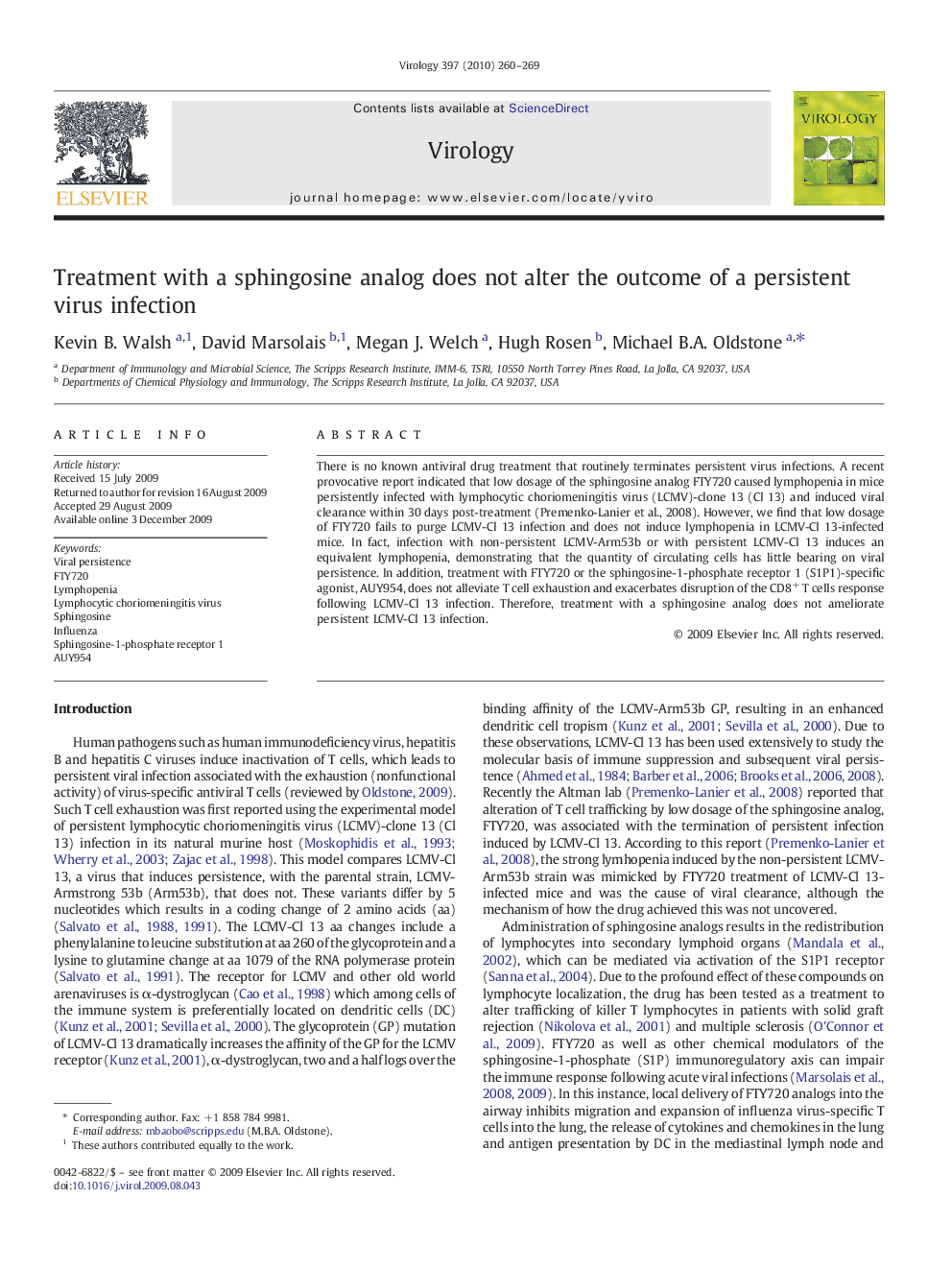| Article ID | Journal | Published Year | Pages | File Type |
|---|---|---|---|---|
| 3425053 | Virology | 2010 | 10 Pages |
There is no known antiviral drug treatment that routinely terminates persistent virus infections. A recent provocative report indicated that low dosage of the sphingosine analog FTY720 caused lymphopenia in mice persistently infected with lymphocytic choriomeningitis virus (LCMV)-clone 13 (Cl 13) and induced viral clearance within 30 days post-treatment (Premenko-Lanier et al., 2008). However, we find that low dosage of FTY720 fails to purge LCMV-Cl 13 infection and does not induce lymphopenia in LCMV-Cl 13-infected mice. In fact, infection with non-persistent LCMV-Arm53b or with persistent LCMV-Cl 13 induces an equivalent lymphopenia, demonstrating that the quantity of circulating cells has little bearing on viral persistence. In addition, treatment with FTY720 or the sphingosine-1-phosphate receptor 1 (S1P1)-specific agonist, AUY954, does not alleviate T cell exhaustion and exacerbates disruption of the CD8+ T cells response following LCMV-Cl 13 infection. Therefore, treatment with a sphingosine analog does not ameliorate persistent LCMV-Cl 13 infection.
